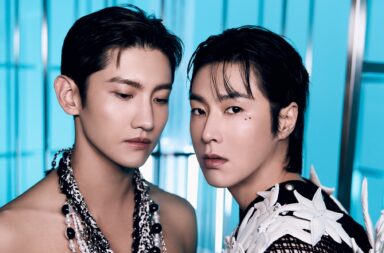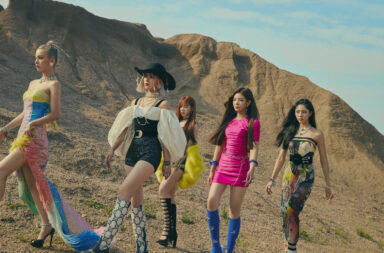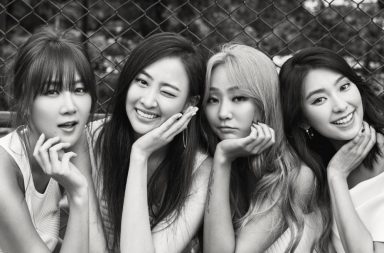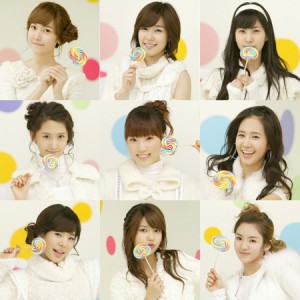 Welcome to this week’s Roundtable!
Welcome to this week’s Roundtable!
A couple of weeks ago, a certain video of kids reacting to K-pop went viral and became a hot discussion topic among K-pop fans. In the midst of the debate, the children were criticized by quite a few of us for having attitudes that were racist, ignorant, or close-minded. Through it all, something that really struck me was that we often forget that as international fans of K-pop, we once stood in their very same shoes. At some point in our lives, we too came across K-pop for the first time, and saw it as something foreign, and I would imagine that some of our reactions weren’t really all that different. When thinking about K-pop and its successes and failures at finding new, global audiences, we often view non-K-pop-listeners as outsiders and try to understand them as such.
However, weren’t we once outsiders as well? What makes us so different now?
When and how were you first introduced to K-pop, and what was your initial reaction to it? In what ways have your perspectives on K-pop/society/culture changed?
Natalie: My first experience with K-pop came with SNSD. One of the people I follow on Tumblr happened to love them and would always reblog pretty gifs and pictures of the girls. My curiosity was piqued and I looked into them. I remember thinking SNSD were gorgeous when I first saw them, because they appeared exotic to me, but after awhile they began to look averagely pretty and cute. My initial thoughts on SNSD and K-pop in general? It struck me as ultra-bubbly, cheerful, catchy music, the sort of stuff tweens listen to. I didn’t see any real meaning to depth, just pure entertainment. Still, I liked K-pop for what it was, catchy, fun music. But it took awhile, about a month, for me to really start caring about it, and I think that’s because I got caught up in all the idol-worship that comes with K-pop. I first listened to K-pop as I would Western music – without really caring about the artist or what they looked like or who they were. With Western music, I just need to like the music. With K-pop, I need to like the group, concept, and music.
K-pop didn’t really strike me as strange like it did the kids in the Kids React video, because by the time I came across K-pop, I was already used to entertainment from other culture. My first initial reaction wasn’t JUDGE JUDGE JUDGE so much as it was accepting it as something different. If it came from my own culture, I would’ve judged it heavily, but because it didn’t I didn’t feel like I had the right to do so. I gradually began to judge it more as I became more familiar with it.
I think the reason why K-pop fans view non-K-pop listeners as outsiders is because everything that comes with K-pop is much different than what comes with other music. I’ve always thought of K-pop fandoms as being very cult-like. People are very passionate and united over a certain group in a way other people not familiar with K-pop would not understand. K-pop fans invest so much more of their time and energy into K-pop that they’re like a separate entity from your typical music fan. Someone that isn’t part of the K-pop subculture, for lack of a better term, wouldn’t understand how K-pop and K-pop fans work. Likewise, K-pop fans see non-K-pop fans as outsiders because they’re not like them and don’t have an oppar or unnir to worship.
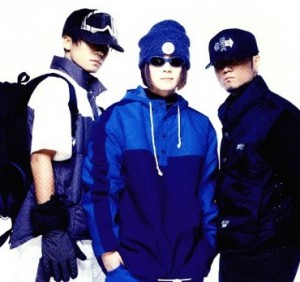 Young-ji: I’m actually looking forward to how the rest of the team is going to answer this questions — I can’t remember the time I was “introduced” to K-pop, for I was born into it. But I do remember how the Korean music landscape changed drastically when SM’s first idol experiment, H.O.T debuted. Of course, there were boy groups before H.O.T, with Seo Taiji and the Boys as the prime example, but H.O.T was able to bring out the special breed of crazies among teenage girls who are looking for somewhere to place all their love towards.
Young-ji: I’m actually looking forward to how the rest of the team is going to answer this questions — I can’t remember the time I was “introduced” to K-pop, for I was born into it. But I do remember how the Korean music landscape changed drastically when SM’s first idol experiment, H.O.T debuted. Of course, there were boy groups before H.O.T, with Seo Taiji and the Boys as the prime example, but H.O.T was able to bring out the special breed of crazies among teenage girls who are looking for somewhere to place all their love towards.
Not only did SM do it right but they also gave birth to the idol system and more than a decade later, the idols are basically dominating the music scene. One constant thing that I’m noticing is that because Korean music industry/the idol system is relatively young, there are still structural and systematic items that need to be flushed out (such as the training system, slave contracts, etc). However, because K-pop is being exported to international fans who have higher standards, the Korean music industry as a whole is having a hard time adjusting to the new expectations while trying to get their houses in order. Despite some of the bumps that K-pop has been experiencing, I think the exposure to international fans and lift in expectations — in terms of music, the acts, the concepts, etc — would benefit K-pop in the long run greatly.
Gil: My first brush with K-pop had to be my friend’s obsession with Super Junior, specifically Donghae and Kyuhyun. She would be sending me a plethora of emails filled with these two boy cuddling various mammals. Initially when I looked into them I wasn’t that interested; granted I was going through my Bollywood phase and watching a lot of Indian movies at the time and Asian boys did nothing for me. Then maybe a year or two later I stumbled upon SNSD’s Genie, there were so many of them and they looked so perfect, I thought some parts of the song were catchy but overall too bubblegum pop for me. I then returned to obsessing over Bollywood movies.
I also went through this Tamil rapping phase where I became obsessed with underground Tamil rap and I saw this video of Big Bang and a Tamil rap backtrack. I saw people spazzing on the comments over Big Bang and I decided to check them out, again not really interesting and I thought TOP wore too much eyeliner in Haru Haru. I actually went through a bunch of their songs but they didn’t appeal to me musically but again I didn’t like I didn’t watch it. I fell in love with K-pop when I was introduced to Super Junior-M‘s Super Girl, and from then on my K-pop love stemmed.
Quite honestly I was dazed at first, K-pop packages very nicely and the colors were fantastic for someone with the attention span of a squirrel (me). But I could identify with some of the things the kids said; when I first saw SNSD I had no idea how to tell them apart but as I grew accustomed to watching them and familiarizing myself with Asian features it became a lot easier. I still have difficulty telling members apart if I am just introduced to them but once I start familiarizing myself with the members, I can catch on pretty quick.
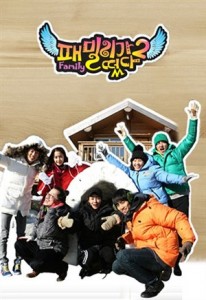 Johnelle: My first encounter with Korean entertainment was through K-dramas. About two years before I myself got into the world of K-pop, a bunch of my friends, my mom, my aunties, and my niece were hooked on them and I reacted like most non-fans: “Uh, why are you watching something in another language, you have to read the subtitles the whole time,” etc. I believe it was that first step that took the longest to hurdle- why get interested in another culture’s shows, music etc. It wasn’t such a big step because coming from Hawaii, I’m used to being around a multitude of culture–in elementary school we were taught a lot of different songs in Hawaiian, Japanese, Chinese, and even Korean (I distinctly remember being taught “Arirang“) for our May Day programs every year.
Johnelle: My first encounter with Korean entertainment was through K-dramas. About two years before I myself got into the world of K-pop, a bunch of my friends, my mom, my aunties, and my niece were hooked on them and I reacted like most non-fans: “Uh, why are you watching something in another language, you have to read the subtitles the whole time,” etc. I believe it was that first step that took the longest to hurdle- why get interested in another culture’s shows, music etc. It wasn’t such a big step because coming from Hawaii, I’m used to being around a multitude of culture–in elementary school we were taught a lot of different songs in Hawaiian, Japanese, Chinese, and even Korean (I distinctly remember being taught “Arirang“) for our May Day programs every year.
But it was that step into really being interested in another culture and not the form of it in the islands that had to be taken to really get me into it. And that didn’t happen with the K-dramas (at first). What got me over that first big step, as I’ve said several times before was really K-varieties. First with We Got Married and a love for Hwang Bo and Kim Hyun-joong which led to Boys Over Flowers and SS501 which started the addiction. But what sealed the deal was really Family Outing.
Through Family Outing, I was really able to make a connection through the show with the Korean culture which had many similarities to my own– love of food, fun, and family. And it was that connection which led me to explore more about Korean entertainment: Other K-varieties (Yoo Jae-suk rules), K-dramas (all my friends liked all the really dramatic cry your heart out dramas while I prefer the lighthearted and funny which is why I think K-dramas didn’t suck me in first), and through my love for Lee Hyori and Daesung (Big Bang fighting!) the wacky world of K-pop. It really takes just one thing to strike a chord with you, something that you can relate to and the world of Korean entertainment suddenly didn’t seem so ‘foreign’ anymore.
Fannie: Yeah, I think subbed variety shows contribute HUGELY to our acceptance and understanding of and attachment to Korean pop culture; can you imagine how different it would be if all we had to go off of these groups was their music and performances (like how we judge artists from America)? I mean, that’s pretty much what international people that have not been exposed to K-pop before have to go off of when they’re judging a group — they haven’t benefited from hours upon hours of watching the members do endearing things like raising babies or puppies on television, so they’re going to judge an act based on how they appear at first glance and what they have to bring to a performance, rather than on personality (which is the basis of most K-pop fans’ emotional attachments to idols).
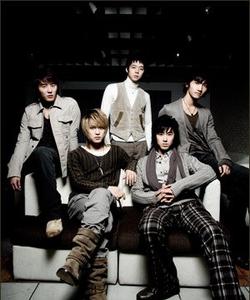 Ree: Honestly, when I was first introduced into K-pop back in 2008 I wasn’t really shocked, or weirded out, or irked. At all. Like a lot of people, I got into K-pop from being into J-pop, which I got into through anime. And that’s probably why the whole K-pop hoo-ha didn’t faze me too much at all. Actually, I remember really liking the music (Tohoshinki and Big Bang particularly), and the only thing that surprised me was actually how good their idol groups were, especially when compared to J-idol groups. After that I do remember thinking where are all the actual bands and soloists? But that’s it. I think it’s really hard for me to pinpoint my initial reaction of K-Pop, because as I said it segwayed from another Asian culture, and I didn’t dive headfirst into it. You could say that I was desensitized to the things other people find weird — pretty looking boys, songs in another language, the fan service.
Ree: Honestly, when I was first introduced into K-pop back in 2008 I wasn’t really shocked, or weirded out, or irked. At all. Like a lot of people, I got into K-pop from being into J-pop, which I got into through anime. And that’s probably why the whole K-pop hoo-ha didn’t faze me too much at all. Actually, I remember really liking the music (Tohoshinki and Big Bang particularly), and the only thing that surprised me was actually how good their idol groups were, especially when compared to J-idol groups. After that I do remember thinking where are all the actual bands and soloists? But that’s it. I think it’s really hard for me to pinpoint my initial reaction of K-Pop, because as I said it segwayed from another Asian culture, and I didn’t dive headfirst into it. You could say that I was desensitized to the things other people find weird — pretty looking boys, songs in another language, the fan service.
If we’re talking about my first endeavour into J-pop/anime, then it’s a different story. I know it’s not the question, but I think that’d be a better way to gauge my reaction to another culture, because as I said, when I got into K-pop, it was more a smooth transition. But with J-pop, it was a bit different. I remember being stunned at the fact Cardcaptors was so much more… scandalous(?) in Japan (I was eleven, people). And I just remember thinking about who different everything was. But that was really it. I definitely thought it was strange and different, but I accepted it as another culture. I never once thought it was ‘weird’ or ‘bad’. I just accepted it as something else that was different from my own culture. I was curious; that was all, really.
Nabeela: I first fell into the world of K-pop back in 2008. This was when nothing was really going on, so I used to spend a lot of my time getting into older songs that had come out from previous years. I will say the first group I ever saw and ever listened to was Super Junior. And to be quite honest, I was horrified when I saw their photos. I mean, blonde and white hair, and a fat kid all in a baker’s dozen type group? It was a serious WTF moment for me. But then their music mesmerized me. I have to say my first favorite was “Happiness” and “Don’t Don,” and though both songs are like polar opposite in image and quality, I just couldn’t help but love it. K-pop to me was very animated and sparkly and overall very enchanting (though I will admit i had thought Heechul was girl for a while). It was also very colorful and the dance scenes were very clean, so overall I had just come to appreciate another genre of music rather following a gateway of other Asian things into K-pop.
I will say as the years have gone by that I’ve become way more critical of K-pop for its double standards and work ethics and group dynamics, especially as over those years there seemed to be an insane K-pop explosion. K-pop is a very interesting business to observe, but that also is something very unfortunate that I have to learn from it all. But I will say that idols are extremely composed and much more professionals than most entertainers around the world, and they have an extreme amount of dedication and endurance that I really have never seen from any one group of national entertainers anywhere. For that reason, I have a huge amount of respect for idols, much more than I did than when I was a noob in K-pop.
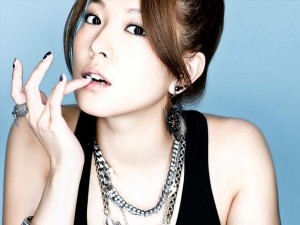 Fannie: Like Ree, my transition into K-pop wasn’t that much of a culture shock because I got sucked into the J-pop/anime culture several years prior to making the switch. The funny thing is that I was a HUGE fan of BoA back then (Valenti, No.1, and Every Heart were my jam back in the day!) but the fact that she was Korean and not Japanese did not even occur to me until years later! If anything, that stands as a true testament to the fact that she was widely accepted as a real J-pop act back when she first entered the Japanese market, unlike the K-pop groups that are being marketed as foreign acts these days.
Fannie: Like Ree, my transition into K-pop wasn’t that much of a culture shock because I got sucked into the J-pop/anime culture several years prior to making the switch. The funny thing is that I was a HUGE fan of BoA back then (Valenti, No.1, and Every Heart were my jam back in the day!) but the fact that she was Korean and not Japanese did not even occur to me until years later! If anything, that stands as a true testament to the fact that she was widely accepted as a real J-pop act back when she first entered the Japanese market, unlike the K-pop groups that are being marketed as foreign acts these days.
My first real contact with K-pop happened when one of my Korean friends lent me the Fly to the Sky Missing You album during lunchtime at school one day, and that’s what sparked my curiousity about other Korean acts as well. K-pop at the time was heavily influenced by the far more established J-pop industry, and so K-pop acts didn’t seem to me all that different from what I had previously been accustomed to. For example, TRAX back in their Paradox and Scorpio days was essentially a Korean copy of Japanese visual kei (I miss the old TRAX). And then DBSK came out with Rising Sun… that was the true tipping point in getting me into K-pop, and I haven’t really looked back since then.
As for things in K-pop that really did throw me off for a bit, that happened when Super Junior came out and it seemed just a bit ridiculous to me how many members they managed to stuff in that one group. (And then I watched U. And was hooked.) I was also similarly flustered with SNSD. When they first came out, I pretty much treated them the same way that I’m sure many people now treat Rainbow or A Pink or Nine Muses — with relative indifference because learning to even tell members apart from each other required effort I wasn’t going to go out of my way to expend. It wasn’t until the Wonder Girls got whisked off to the US and I randomly came across subbed clips of MTV Behind The Story Of SNSD on YouTube that I was able to start really being able to appreciate the group and give them a chance.
A final thing that was new to me about K-pop was the concept of the ‘anti-fan’. I was so shocked when I realized the extent to how organized the efforts of these people were, how proud they were of their hatred (so much so that it became an identity), and the extremes to which they will go to appease themselves (Yunho’s super glue incident, anyone?). I really think that anti-fan culture is something very unique to K-pop, and also very frightening, to say the least. Fandoms when I first got into K-pop seemed much more laid back and supportive; nowadays, extreme and immature fan behavior on both ends (sasaeng fans are not really any better) really turns me off.
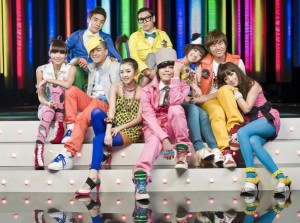 Maddie: I first came across K-pop in late 2009 as I was searching for make-up tutorials on YouTube. This was around the time I was really getting serious about make-up. I was especially interested in techniques and styles from Asia. So, as I searched for Gyaru looks from Japan I came across Ulzzang looks as well. From there, I went onto Korean Fall/Winter Fashion 2009 and Korean Street fashion. The search continued from one subtopic to another until I ended up watching an MV by a boy group called Big Bang.
Maddie: I first came across K-pop in late 2009 as I was searching for make-up tutorials on YouTube. This was around the time I was really getting serious about make-up. I was especially interested in techniques and styles from Asia. So, as I searched for Gyaru looks from Japan I came across Ulzzang looks as well. From there, I went onto Korean Fall/Winter Fashion 2009 and Korean Street fashion. The search continued from one subtopic to another until I ended up watching an MV by a boy group called Big Bang.
My initial reaction was, “What is this?” There were so many bright colors and bright lights flashing; so many different shots and angles. I really couldn’t differentiate one member from the next since it was like they were all thrown at me at once. They were just so…bright and outrageously dressed. I guess everything was just too visual for my Western eye and I was overwhelmed. The only member that really stood out to me was the one with the Mohawk and dancing skills as well as the dude who, apparently, was above smiling. I didn’t think much of the song (too much auto-tune and the lyrics were funny) or the MV for that matter. I went back to my make-up tutorials and forgot about K-pop, Big Bang and the guy with the Mohawk.
Sometime later, K-pop came up during a conversation with a friend. I mentioned the one group I knew and he suggested I check out Taeyang’s “Wedding Dress.” So I did, and I was completely intrigued from the moment I saw this masculine young man in a Yankee baseball cap, jeans and sneakers sitting at a black piano. The choreography was unfamiliar, and the suit and fedora hat did remind me of Ne-yo but I went on to watch more MVs by this person named Taeyang.
Kan Mi-yeon, SNSD, KARA, 2NE1 among others followed after. Now, half of my digital purchases on iTunes are K-pop groups. I get ads in Korean on YouTube, junk emails from Asian dating sites, and my family and friends think I’ve been going through an identity crisis for the past year. Thank you, YouTube and B, B, Big Bang! Oh, eh, oh! Sorry, just had to.
